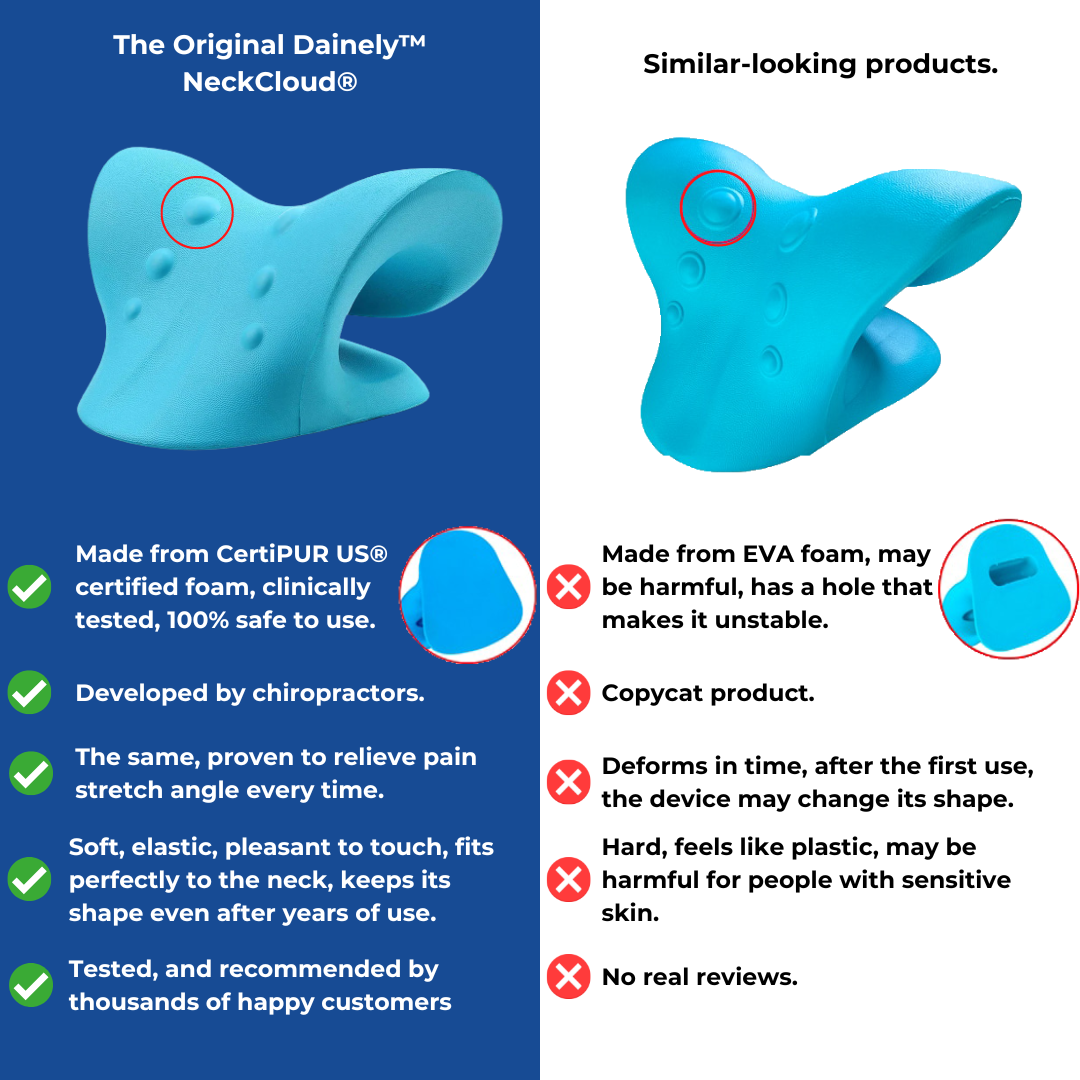Neck Cloud: Cutting-edge Assistance for Discomfort Relief and Better Position
Wiki Article
The Influence of Anxiety on Neck Discomfort: Strategies for Lowering Stress and Discomfort
In today's hectic globe, it's no key that stress and anxiety has actually come to be a prevalent factor in the beginning and exacerbation of neck discomfort. The intricate partnership in between anxiety and muscle tension often leaves people looking for relief from the discomfort that occurs. By exploring targeted methods targeted at lowering stress and advertising leisure, one can begin to resolve the origin of neck pain and job towards a more balanced state of wellness. Join us on a trip to unravel the effect of stress on neck discomfort and discover reliable ways to reduce discomfort and improve total top quality of life.Understanding Stress-Related Neck Discomfort
Neck discomfort is an usual issue that can frequently be credited to anxiety. Stress-related neck discomfort can show up as stress, tightness, or pain in the neck and shoulder location. The link in between anxiety and neck pain lies in the body's physical response to tension, which can lead to muscle tension and rigidity in the neck muscle mass. Chronic tension can result in relentless neck discomfort and worsen current problems like cervical spondylosis or muscle strains.
Identifying Common Stress Locations
Frequently experienced by people under anxiety, stress areas in the body can provide important insights into the physical manifestations of psychological strain. One common tension area is the neck, where stress and anxiety usually materializes physically. Stress frustrations, rigid neck muscle mass, and restricted variety of motion prevail signs of stress-related neck stress. The shoulders are an additional usual location where tension accumulates. Stress and anxiety can trigger the muscle mass in the shoulders to tighten, causing pain and pain. In addition, the top back is prone to tension accumulation, particularly in individuals who experience persistent stress. Poor pose and prolonged sitting can worsen stress around. The jaw is also a typical location for stress-related tension, as many individuals clinch their jaw or grind their teeth when stressed. Recognizing these common tension areas can aid people acknowledge the physical signs of stress and anxiety and take actions to resolve them before they escalate right into chronic pain or pain.
Applying Leisure Methods
Relaxation techniques are valuable tools for decreasing neck pain triggered by stress. In addition, tasks like yoga and tai chi include both physical movement and relaxation, making them efficient methods for lowering stress and neck pain. By including these leisure methods right into your everyday regimen, you can help handle stress and anxiety degrees, minimize tension in the neck, and reduce pain linked with stress-induced neck discomfort.Incorporating Self-Care Practices
Integrating self-care practices is essential for preserving overall well-being and managing stress-related neck pain properly. Participating in regular physical task, such as mild extending workouts or yoga exercise, can aid relieve tension in the neck and shoulders. Practicing excellent pose throughout the day and taking regular breaks from extended sitting or screen time can also stop strain on the neck muscular tissues.Additionally, prioritizing adequate rest and developing a consistent sleep routine can contribute dramatically to see this reducing stress and anxiety degrees and promoting leisure. Developing a relaxing going to bed regimen, such as reading a book or taking a cozy bathroom, can aid prepare the body and mind for relaxed sleep. In addition, keeping a balanced diet abundant in nutrients and staying moisturized can support general wellness and decrease swelling that may intensify neck discomfort.
Integrating mindfulness methods, such as deep breathing exercises or reflection, can assist handle stress and anxiety and advertise leisure. Requiring time for oneself, participating in pastimes, and establishing limits to shield individual time are also essential aspects of self-care that can contribute to decreasing tension and relieving neck discomfort.
Seeking Expert Aid
Just how can people properly address relentless neck discomfort that is impacting their daily continue reading this life and health? Seeking specialist help can be a vital step in managing and easing neck pain.Chiropractics physician specialize in spinal control methods to improve alignment and reduce tension in the neck area. Physical specialists supply targeted stretches and exercises to reinforce muscles, boost versatility, and boost overall neck feature. Orthopedic professionals can give innovative medical interventions such as injections or surgical alternatives for severe instances of neck pain.
Final Thought

Stress-related neck pain can show up as stress, rigidity, or pain in the neck and shoulder area. The connection between anxiety and neck discomfort exists in the body's physiological reaction to stress, which can result in muscular tissue stress and tightness in the neck muscular tissues. Tension migraines, rigid neck muscle mass, and limited array of movement are common signs of stress-related neck stress. By integrating these relaxation methods right into your daily regimen, you can help manage stress degrees, lower tension in the neck, and alleviate i thought about this discomfort connected with stress-induced neck discomfort.

Report this wiki page